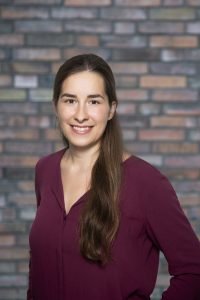Woman in Science

Svenja de Buhr is a doctoral researcher in the MBM group and today one of the protagonists in the video series “Woman in Science” of the Cluster of Excellence 3D Matter Made to Order (3DMM2O), a joint research cluster of the Karlsruhe Institute of Technology (KIT) and Heidelberg University funded by the DFG. In this interview, Svenja talks about her research journey from medical to basic research and how she collaborates with experimental researchers in the cluster.
The video is available here: https://www.youtube.com/watch?v=0-ak503QkZU.
Find the whole video series here: https://www.youtube.com/channel/UCufbI2dodiL46KZS9cYN9mw
The main task of the Cluster 3DMM2O is to take 3D Additive Manufacturing from the macroscale to the micro-, nano-, and eventually to the molecular scale. In 2019, Svenja received a Carl Zeiss Foundation scholarship. The Carl Zeiss Foundation scholarship program offers around 20 stipends for doctoral researchers. If you are interested in more information on the Cluster and the Carl Zeiss Foundation scholarship check the website: www.3dmm2o.de.
About HITS
HITS, the Heidelberg Institute for Theoretical Studies, was established in 2010 by physicist and SAP co-founder Klaus Tschira (1940-2015) and the Klaus Tschira Foundation as a private, non-profit research institute. HITS conducts basic research in the natural, mathematical, and computer sciences. Major research directions include complex simulations across scales, making sense of data, and enabling science via computational research. Application areas range from molecular biology to astrophysics. An essential characteristic of the Institute is interdisciplinarity, implemented in numerous cross-group and cross-disciplinary projects. The base funding of HITS is provided by the Klaus Tschira Foundation.
